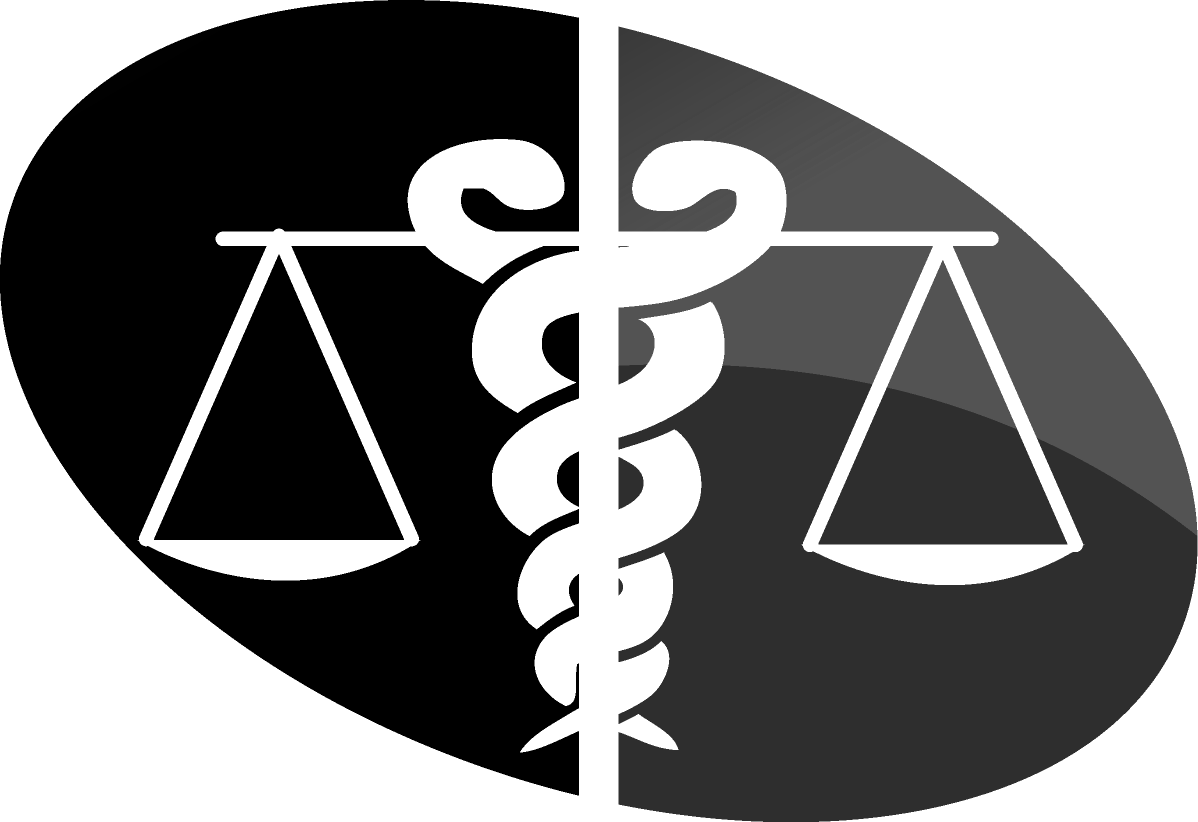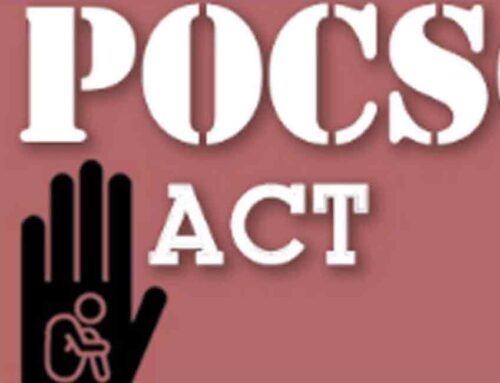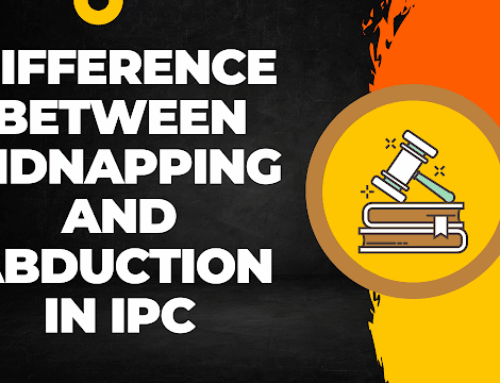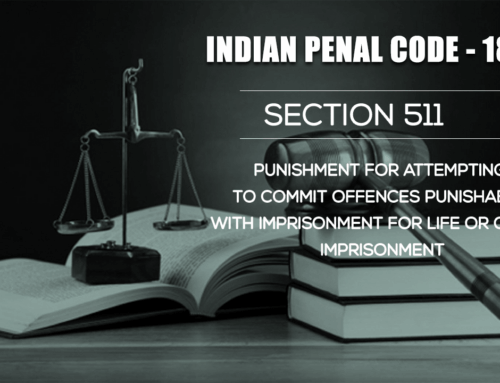– Abul Kalam Azad Sulthan, Advocate, High Court of Judicature at Madras and Madurai Bench of Madras High Court & Partner, Spicy Law Firm.
Introduction:
Doctors are approached by patients as the patients believe that the doctor can give medical treatment with the knowledge and experience gained from the medical education and years of practice, and give relief to the patient from his ailment. This kind of relationship can be considered as a contract between the patient and doctor and hence it attracts the provisions of Tort.[1] A medical doctor has to fulfill his part of the contract, that is, he has to discharge his duties in an efficient manner and failure to fulfill such duties towards his patient is a cause of action for negligence under the Law of Torts. It is the duty of the doctors to explain the patient about the diagnostic tests, therapies, procedures, and treatment to be given, and receive the consent of the patient and/or relative (attendant/bystander) before proceeding with the diagnostic tests, therapies, procedures, and treatment.
The Medical profession and the treatment given by the doctors are covered under the purview of the Consumer Protection Act, 1986, and hence the patients can approach the appropriate consumer forums for remedies and grievance redressal. When it comes to Medico-legal cases, Case Laws and Precedents play a vital role, and Courts and Authorities follow the same while adjudicating such cases arising out of treatment by a doctor. In India, the awareness about the rights of patients is rapidly growing, and hence there is a spike in the number of medico-legal cases in the recent years. Recently, the number of cases regarding the medico-legal issues have been exponentially increasing and most of the cases are litigations regarding medical professional or hospital, claims for the sufferings caused due to medical negligence, the disclosure of confidential patient information to the third party and irregularities regarding consent etc.
This article is about what are the laws a doctor should know, the legal decisions regarding medical negligence, what is considered a negligence in civil and criminal law, and how and about whom the negligence has to be proved.
Due to the growing public awareness in India about Medical Negligence, several hundreds of hospitals are facing legal cases and complaints related to the facilities in the hospital, standards of the treatment given, qualification and competence of the doctors, and whether the patient was diagnosed properly and given appropriate treatment. Since the Consumer Protection Act, 1986, came into force several hundreds of patients have filed legal cases against doctors and hospitals, have proved before appropriate forum that the doctors were, in fact, negligent while providing medical treatment or while performing diagnostic test, have claimed compensation for their sufferings due to such medical negligence and were awarded compensation by the Consumer forums. Due to such cases, there were several precedents and case laws in which binding decisions were made on what is medical negligence, what constitutes medical negligence, and what has to be proved, by whom it has to be proved.[2]
It is very important to know for a Doctor about what is medical negligence and what constitutes medical negligence. Patients come to a doctor to get relief from his sufferings and the doctor owes certain duties towards the patient and gives proper consultation regarding the ailment, diagnostic test and treatment. Any kind of deficiency in this duty towards the patient is considered as negligence. If a doctor gains fundamental knowledge about the medical negligence laws and how the medical negligence cases are adjudicated in various consumer forums and other courts, the doctor can practice without unnecessary fret regarding the litigation for any alleged medical negligence etc.
Duties of Doctors to their Patients:
There is a Code of Medical Ethics in India given by the Medical Council of India (The Indian Medical Council (Professional conduct, Etiquette, and Ethics) Regulations, 2002), and this code explains the duties of doctors to their patients.[3]
2.1.1 Although there is no obligation for a physician to treat each and every person approaching him for his medical service, but he is necessarily ready always to answer the calls of the sick patients and the injured, moreover he should be mindful of the highly respected character of the mission and the responsibility of the medical profession, while he is discharging the professional duties. While providing treatment to a patient, he should be mindful of the fact that the health and the lives of the patient entrusted in his hands to his care is relying on his education, experience, skills, expertise, and attention. A physician must always be ready to give comfort to the sick patients by visiting at the hour earlier indicated to the patients. It is acceptable fact universally that a physician can advise a patient to get service from another physician, but still, in case of any kind of emergency, a physician must treat the patient. A physician cannot refuse to provide treatment to a patient arbitrarily. But if is there any acceptable reason, for example, if the physician is not having enough education or experience in treating some particular ailment and if the patient approaches him is suffering from such ailment in which the physician is not having enough experience to treat, the physician may refuse treatment to such patients and refer the patient to another physician with required education and experience in treating such particular ailment.
2.1.2 If the physician is having any kind of incapacity which can be detrimental to the patient, and if such incapacity can affect the performance of the physician, then such physicians are not permitted to practice his profession and treat patients.[4]
2.2 Patience, Delicacy and Secrecy: The Physician should have the character with patience and delicacy. Some patients will have to disclose confidences concerning individual or his/her domestic life and they entrust such information to the physician. There can be defects in the disposition or character of patients which is being observed by the physician during his medical treatment. Such information should never be revealed by the physician unless their revelation is required by the laws of the land. In some occasions, however, a physician must decide whether it is his enshrined duty to society needs him to use his experience, knowledge, and skills, obtained by way of confidence as a physician from the patient, to save any healthy person from the attack of any communicable disease to which he is about to be exposed. In such circumstances, the physician should discharge his duty as he would wish another to act toward one of his own family in like circumstances.
2.3 Prognosis: The physician should neither overemphasize nor minimize the profundity of a patient’s current condition. A Physician must ensure himself that the patient, his bystanders, and relatives or the responsible persons of the patient are well aware of the patient’s condition as this will serve the best interest of the patient and his relatives.
2.4 The Patient must never be neglected: A physician has the right to choose to whom he can render service. But he should respond to all and every request for his assistance in any kind of emergency. Once if the physician undertakes a case, the physician should never neglect the patient who entrusted his life in the hands of the physician, nor he should withdraw from rendering service to the patient without giving advance and adequate notice to the patient and his relatives. Provisionally or fully registered medical practitioner shall not willfully commit an act of negligence that may deprive his patient or patients of necessary medical care.
2.5 Engagement for an Obstetric case: When a physician who has been engaged to attend an obstetric case is absent and another is sent for and delivery accomplished, the acting physician is entitled to his professional fees, but should secure the patient’s consent to resign on the arrival of the physician engaged.[5]
Medical Negligence
In India, lawyers and doctors are considered as noble as they are helping persons to get relieved from sufferings. The Legal Profession is considered a noble profession as it helps people to protect their rights and assist them to get remedies when their legal rights are violated. Similarly, the medical profession is regarded as a noble profession since it helps to get relief from ailments and to preserve life. People consider Doctors as the living form of Gods and/or representatives of God. An old proverb in regional language says, as the God could not personally help each and everyone during their ailments, God created Doctors to serve the society. Usually, patients generally visit a Hospital or Doctor based on what they heard about the reputation of the hospital or doctor. The patients expect the following two things whenever they visit a hospital or doctor. 1. The patients expect to get the best treatment from the Hospital or Doctor as they believe in the knowledge, competence, skill, and experience of the doctor and the facilities available at the Hospital. 2. The patients strongly believe that the Doctor or the Hospital will never do any wrong or any harm to the patient for any reason and in any manner because of any negligence, recklessness or careless behavior of the doctor or staff of the hospital.[6] The Patients entrust their life at the hands of the Doctors. But we cannot expect a doctor to save the life of patients all the time. There are several limitations and discomforts, the Doctors come across while treating patients. Although the Doctor cannot be able to save the life of a patient at all times, a Doctor has to use his learned knowledge, skill, and experience in the most efficient manner to discharge his duties towards the patient. A doctor must keep in mind the interest of the patient who has entrusted his life in the hands of the doctor. Hence, it is the duty of the Doctor to carry out all necessary investigation and to collect the medical/treatment history from the patient.[7] Unless there is an emergency during which the Doctor cannot spare time, the Doctor is expected to explain the patient and the bystander (attendant) about the treatment, any surgical operation, or invasive diagnostic tests before beginning such procedures and to obtain an informed consent from the Patient and/or bystander (attendant). Failure to obtain informed consent from a Doctor constitutes a tortious liability.
A tort is a civil wrong[8] and it is a breach which will attract intervention by the judiciary and the remedy is usually by awarding damages. Hence the right of a patient to get proper and appropriate medical treatment from doctors and hospitals is basically a civil right. Since there is an informed consent, fees paid to the doctor to get treatment and performance of the obligation by the Doctor by providing treatment, this relationship between a Doctor and his patients can be considered as a contract. But still, the elements that constitute a tort is also retained in the relationship between a doctor and the patients.
In the famous case of “Dr. Laxman Balkrishna Joshi Vs. Dr. Trimbark Babu Godbole and Another, AIR 1969 SC 128” and “A.S.Mittal vs. State of Uttar Pradesh, AIR 1989 SC 1570”, the Supreme Court of India laid down as follows. The Apex court said that when a patient comes to a doctor for a consultation, the doctor has to discharge certain duties towards his patient. Those duties are 1) Duty of care while deciding whether the case can be undertaken by him, 2) duty of care while deciding the course of treatment to be given to the patient, and 3) duty of care while administering the treatment to the patient.[9] Any breach in the performance of the above-listed duties will create a cause of action against the doctor or the hospital for medical negligence and such patients who suffered due to the negligence of the Doctor or Hospital can complain and recover damages for the sufferings the patients had to undergo due to the negligence of the doctor or hospital. In the aforementioned case, the apex court inter alia observed that negligence has many different forms – it may be active negligence, criminal negligence, comparative negligence, continued negligence, concurrent negligence, collateral negligence, hazardous negligence, gross negligence, passive negligence, willful or reckless negligence, or negligence per se. Black’s Law Dictionary defines negligence per se as “conduct, whether of action or omission, which may be declared and treated as negligence without any argument or proof as to the particular surrounding circumstances, either because it is in violation of statute or valid Municipal ordinance or because it is so palpably opposed to the dictates of common prudence that it can be said without hesitation or doubt that no careful person would have been guilty of it. As a general rule, the violation of a public duty, enjoined by law for the protection of person or property, so constitutes.”
The Supreme Court explained regarding the homeopathic doctors practicing allopathic medicine without proper and basic qualification in Allopathic medicine in “Poonam Verma vs. Ashwin Patel and Others. (1996) 4 SCC 322”. In this famous verdict, the Supreme Court held that any person practicing a particular system of medicine, without the necessary knowledge in the particular system of medicine is a quack. In such cases, the person is guilty of negligence per se, and hence no further evidence or proof is needed to prove this case. [10]
Duty to obtain informed prior consent:
It is a duty of the Doctor to explain about the diagnostic tests, the outcome of such tests, the treatment plan, any surgical operation, the effects of such procedures, associated risks, any invasive diagnostic tests etc to the patient and his by-stander/attendant and obtain an informed consent from the patient before starting such diagnostic tests and treatment.[11] A doctor should not disclose any treatment information and diagnostic report to any third party without prior consent of the patient. Consent can be obtained in the following methods:
Express Consent: Express or Explicit consent can be obtained orally or by way of writing. Although both of these (oral or written) types of consents are having equal value, a consent obtained in writing is considered a better one due to the evidential value of the written document.
Implied Consent: It is not a consent given by patient explicitly, but the patient consented to the treatment implicitly through his actions and such implied consent may be given by the action and conduct of the patient.
Tacit Consent: Tacit consent is a form of implied consent (it is not an explicit consent) and such consent is perceived without being said.
Surrogate consent: This consent is usually given by the patient’s family members. Advance consent, proxy consent, and presumed consent are also types of consents used in different circumstances.[12] The advance consent is a kind of consent given to a doctor or hospital by a patient in advance. The term proxy consent means the consent is given to the doctor by an authorized representative of the patient. As mentioned in this heading earlier, informed prior consent obtained in writing from the patient after clearly describing every possible risk associated with the treatment or diagnostic tests and side effects of such treatments and test is superior to all other forms of consent.[13]
The importance of obtaining informed consent:
In the famous case of “Samira Kohli vs. Dr. Prabha Manchanda and Others. I (2008) CPJ 56 (SC)”, the Supreme Court of India decided that if a consent is obtained for diagnostic and operative laparoscopy and even if it mentioned “laparotomy if needed” will not be considered as a consent for a total hysterectomy with bilateral salpingo oophorectomy. The medical term ‘total hysterectomy with bilateral salpingo oophorectomy’ means ‘Surgical removal of all of the uterus, and the right and left fallopian tubes, and the right and left ovaries’ in plain language.
In this case, the Supreme Court opined that the appellant was not a minor. The appellant is neither mentally challenged nor incapacitated in any way. As the said patient was a competent adult, there was no question about getting a consent from someone else on behalf of obtaining an informed consent from the patient. During the surgery, the appellant was under the influence of anesthesia and temporarily remained unconscious. Although the patient was temporarily unconscious due to anesthesia, there was not a case of emergency. The respondent doctor should have waited for some time for the appellant to get back consciousness and then should have obtained a proper informed prior consent from the patient. Since there is no emergency, there was no need to get the consent from the patient’s mother.[14] In this circumstances as there was no emergency, the consent given by the patient’s mother is not a valid consent and cannot be considered as a real consent.
The question in this instant case is not about the treatment and the correctness regarding the decision taken for the surgical removal of (Surgical removal of all of the uterus, and the right and left fallopian tubes, and the right and left ovaries) reproductive organs, but the failure of performance of obligation by the Doctor to explain the patient about the procedure to be performed and the risks associated with the surgical procedure and to obtain a informed prior consent from the patient for the surgical removal of the uterus, and the right and left fallopian tubes, and the right and left ovaries as the completion of the surgery without explaining the patient and taking informed prior consent constitutes an unauthorized infraction and transgression with the body of the appellant patient. The respondent doctor should not charge any fee and is denied all fees charged by him for the surgery and he was directed to pay Rs. 25000/- (Rupees Twenty Five Thousand) as damages/compensation for the surgery performed without obtaining prior informed consent.
The doctors and hospitals coming under the ambit of the Consumer Protection Act, 1986:
In the leading case of “the Indian Medical Association vs. V.P. Shanta and Others, III (1995) CPJ 1 (SC)”, the Apex Court gave its final decision on the issue with ambiguity regarding the medical profession coming under the ambit of the Consumer Protection Act, 1986[15]. With this historic decision, all ambiguity surrounded on this subject was cleared. With this history-making decision, doctors and hospitals should consider all their patients as consumers even though the treatment is given without any fee. In a few landmark decisions by the National Commission dealing with the cases of deaths in hospitals, the National Commission has opined that there is a possibility of death in hospitals even though there is no negligence in giving treatment to the patients.[16]
Doctors Protection Act:
It is a universal fact that a doctor in this world will not even think to hurt or cause any damage to his/her patient[17] and he will do all he can to treat the patient with care to the best of his knowledge, skill, and expertise. But still, there is no doctor who can guarantee and assure 100% safety to the life of the patient.
There is a growing trend of mistrust in patients and their bystanders on the treatments received from the doctors or hospitals and these are becoming a major challenge for the Doctors and Hospitals.
The Doctor’s Protection Act in India:
The Doctor’s Protection Act 2010 is not a central act. But it is an act by around 18 states in India.[18] Although this act is a good move in favor of hospitals and doctors, this act could not prove beneficial as the implementation of the said act is not done in a proper manner by the states.
Conclusion:
In a survey conducted by IMA (Indian Medical Association), the results showed that more than 75% of the doctors face some kind of violence at their work especially in treating patients in the emergency department of hospitals. Such kind of violence may range from verbal abuses to manhandling, physical assaults to threatening and in some rare cases even murder. Doctors should be aware of the medico-legal issues, norms, and rules and should not become a victim of intolerance and injustices.[19]
Works Cited – Bibliography
Rk Sharma: Medico-Legal Aspects Of Patient Care
Donald Page Lambert: The Medico-legal Post-mortem in India
Arun K. Agarwal: Standard Operating Procedures(sop) For Hospitals In India
Tapas Kumar Koley: Medical Negligence and the Law in India: Duties, Responsibilities, Rights
RABINDRA NATH KARMAKAR: PROCEDURES FOR MEDICOLEGAL REPORT WRITING
Rai Bahadur Jaising P. Mod: A Text-Book of Medical Jurisprudence and Toxicology
Sonu Dr Goel: Textbook of Hospital Administration
Vallanadu Narayanan Viswanathan: Consumer Rights in Service Sector
M N Roy: Management for Doctors – A Holistic Approach
Kumar S.L. Goel: Hospital Administration and Management: Theory and Practice
Wai-Ching Leung: Law for Doctors
Subrata Sharma: Medical Ethics: Challenges and Prospects in India
[1] Rk Sharma: Medico-Legal Aspects Of Patient Care
[2] Arun K. Agarwal: Standard Operating Procedures(sop) For Hospitals In India
[3] Subrata Sharma: Medical Ethics: Challenges and Prospects in India
[4] Rk Sharma: Medico-Legal Aspects Of Patient Care
[5] Arun K. Agarwal: Standard Operating Procedures(sop) For Hospitals In India
[6] Rk Sharma: Medico-Legal Aspects Of Patient Care
[7] Subrata Sharma: Medical Ethics: Challenges and Prospects in India
[8] Sonu Dr Goel: Textbook of Hospital Administration
[9] Sonu Dr Goel: Textbook of Hospital Administration
[10] Tapas Kumar Koley: Medical Negligence and the Law in India: Duties, Responsibilities, Rights
[11] RABINDRA NATH KARMAKAR: PROCEDURES FOR MEDICOLEGAL REPORT WRITING
[12] Sonu Dr Goel: Textbook of Hospital Administration
[13]Donald Page Lambert: The Medico-legal Post-mortem in India
[14] Rai Bahadur Jaising P. Mod: A Text-Book of Medical Jurisprudence and Toxicology
M N Roy: Management for Doctors – A Holistic Approach – Page 82
Vallanadu Narayanan Viswanathan: Consumer Rights in Service Sector
Rk Sharma: Medico-Legal Aspects Of Patient Care
Tapas Kumar Koley: Medical Negligence and the Law in India: Duties, Responsibilities, Rights
[19] Tapas Kumar Koley: Medical Negligence and the Law in India: Duties, Responsibilities, Rights







Leave A Comment